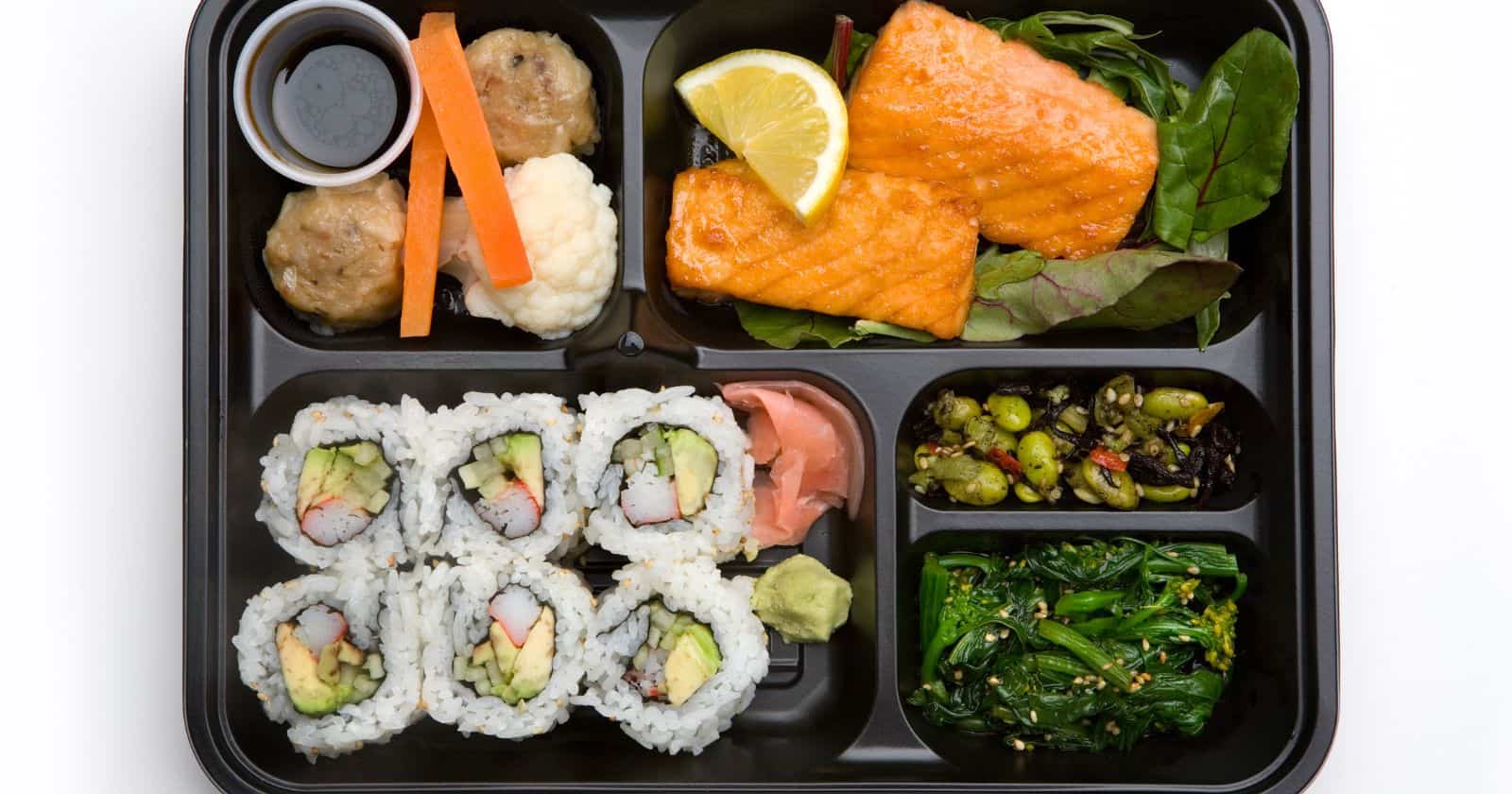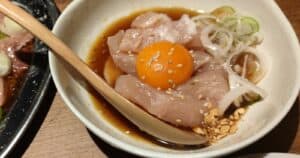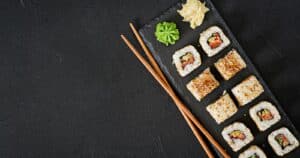Looking to experience the delicious flavors of Japanese cuisine while adhering to a halal diet? The availability of halal food in Japan has increased in recent years, giving Muslim travelers and residents more options to explore. In this blog post, we will delve into the question of whether Japanese food is halal and provide valuable information on finding halal-certified restaurants and dishes in Japan.
Yes, Japanese food is not inherently halal, but there are numerous halal Japanese food options available in Japan. From halal-certified restaurants to specific dishes made with halal ingredients, Muslim travelers can now enjoy the best of Japanese cuisine without compromising their dietary restrictions.
Remember, while finding halal food in Japan may be a challenge, the increasing number of halal-certified restaurants and the availability of halal options in supermarkets and convenience stores are positive indications.
By knowing where to look and which ingredients to watch out for, you can ensure a memorable and halal culinary experience in Japan. So, let’s dive in and explore the delicious world of halal Japanese food together!
Understanding Halal Food: Basic Principles and Requirements
Halal food refers to food that is permitted under Islamic Law. It must comply with certain principles and requirements to be considered Halal. The basic principles of Halal food standards include the labeling of food produced in accordance with the Islamic faith.
Halal food not only needs to meet religious requirements but also needs to maintain cleanliness, hygiene, and suitability in terms of human values. It is not only sought after in Muslim countries but also worldwide where a billion Muslims reside.
To be considered Halal, food must fulfill certain conditions. It should not consist of or contain anything that is considered unlawful according to Islamic Law. Additionally, it must not be prepared, processed, transported, or stored using appliances or facilities that have come into contact with anything unlawful.
Under Islamic Law, all sources of food are lawful except for certain sources, such as pigs, boars, dogs, snakes, and carnivorous animals like lions, tigers, and bears. Halal food can be prepared, processed, or stored in proximity to non-Halal foods, as long as there is no contamination.
Halal food should comply with Islamic Law and food hygiene principles. It should be prepared, processed, packaged, transported, and stored in a manner that meets these requirements. Adhering to these principles ensures that the food is considered Halal for consumption by Muslims.
Common Ingredients and Dishes in Japanese Cuisine
Japanese cuisine is known for its unique flavors and ingredients. Some common ingredients in Japanese cuisine include soy sauce, miso, mirin, vinegar, katsuobushi, kombu, sake, nori, udon noodles, and rice.
- Soy sauce, the most essential ingredient, is added to almost all Japanese dishes.
- Miso, a fermented soybean paste, is used as a seasoning base for soups, stews, and more.
- Mirin, a sweet rice wine, is used to add flavor to dishes.
- Rice vinegar and katsuobushi, dried, fermented, and smoked skipjack tuna, are also commonly used.
- Kombu, a type of seaweed, is used to make dashi broth.
- Sake, a Japanese rice wine, is used in cooking to add flavor and tenderize meat.
- Nori, dried seaweed, is used as a wrap for sushi and onigiri, and as a topping for dishes like ramen.
- Udon noodles, thick and chewy noodles made from wheat flour, are commonly used in soups and stir-fries.
- Rice, a staple of the Japanese diet, is served with almost every meal and is used to make dishes like sushi and onigiri.
Japanese cuisine offers a variety of dishes that showcase these ingredients.
- Sushi, a dish of vinegared rice topped with seafood, vegetables, or egg, is popular worldwide.
- Ramen, noodles served in a savory broth with various toppings, is another well-known dish.
- Tempura, seafood or vegetables that are battered and deep-fried, is a favorite among many.
- Yakitori, skewered and grilled chicken seasoned with soy sauce, is commonly served with vegetables.
- Okonomiyaki, a savory pancake made with cabbage, meat or seafood, and topped with various condiments, is a popular street food.
- Onigiri, rice balls filled with fish or other ingredients and wrapped in nori, are convenient and tasty snacks.
- Miso soup, made with miso paste, dashi broth, and various ingredients, is a comforting and nutritious dish commonly enjoyed with meals.
The potential presence of Haram Ingredients in Japanese Food
Haram ingredients, which are not permissible under Islamic law, may be present in Japanese food. These ingredients include pork, beef, chicken, ham, lard, and gelatin. It is important for Muslims who follow halal dietary restrictions to be aware of these ingredients and carefully read food labels when purchasing food in Japan.
To assist Muslims in finding halal options, there are halal restaurants and food options available in Japan. Websites such as Halal Gourmet Japan and Halal In Japan provide information on halal restaurants and products. However, finding halal food in Japan can still be challenging. Visitors who are concerned about non-halal foods are advised to consider bringing their own food and cutlery to Japan.
Finding Halal Japanese Restaurants: Certifications and Verification
To ensure the authenticity of halal Japanese restaurants, there are several methods of verification available. These include:
- Halal Certification: Some Japanese restaurants have obtained halal certification, verifying that they meet the standards set by halal certification bodies. This certification process can be costly and time-consuming, which is why not all restaurants may have it. However, Halal Gourmet Japan is a reliable resource that provides information on halal-certified restaurants as well as Muslim-friendly establishments.
- Ingredients and Raw Materials: Even if a restaurant does not hold halal certification, it is still possible to verify the halal status of their food. Customers can check the ingredients and raw materials used by the restaurant, either by referring to their menus or websites. This way, they can ensure that the food meets their halal requirements.
- Online Reviews: Online reviews can be a useful source of information when determining whether a restaurant is halal. Muslim customers often provide positive reviews for halal restaurants they have visited. These reviews can help others make informed decisions about halal Japanese restaurants.
It is advisable to directly communicate with the restaurant if there are any uncertainties about their halal status. Restaurants are generally open to answering customers’ questions and providing clarifications about their food and preparation methods.
Alternatives and Adaptations: Making Japanese Food Halal at Home
If you follow a halal diet and love Japanese cuisine, you can easily make Japanese food halal at home. Here are some tips and alternatives that will help you create delicious halal Japanese dishes:
- Substitute haram ingredients: To make your Japanese dishes halal, replace haram ingredients like pork and alcohol with halal alternatives. For instance, use chicken or beef instead of pork and vinegar or lemon juice instead of alcohol. These substitutions will ensure that your dishes remain in line with halal requirements.
- Use halal-certified ingredients: Opt for halal-certified soy sauce, miso paste, and rice vinegar in your recipes. Halal-certified ingredients guarantee that they are prepared according to halal standards, giving you peace of mind while enjoying Japanese flavors.
- Make your own dashi broth: Dashi broth is a staple in Japanese cooking. However, traditional dashi often contains bonito flakes, which are not halal. Instead, you can make your own dashi broth using kombu seaweed and shiitake mushrooms. This homemade version will add the authentic Japanese taste to your dishes while remaining halal-friendly.
- Make your own sushi: You can easily prepare halal sushi at home by using halal-certified rice vinegar, nori (seaweed), and halal seafood. Making your sushi allows you to customize fillings according to your preferences while ensuring that all ingredients are halal.
- Make your own ramen: Homemade halal ramen is as delicious as the ones you find in Japanese restaurants. Use halal-certified soy sauce and chicken or beef broth to flavor your ramen. Add your favorite halal toppings such as sliced chicken, beef, or vegetables to create a fulfilling and authentic dish.
- Make your own tempura: Tempura, a popular Japanese dish, can be made halal by using halal-certified flour, eggs, and seafood or vegetables. With these halal ingredients, you can easily recreate the crispy and flavorful tempura at home.
- Find halal-certified Japanese food products: Look for halal-certified Japanese food products, such as instant ramen and sauces. These products are specially made to meet halal requirements, saving you time and effort in preparing halal Japanese meals.
Traditional Japanese Practices and Customs with Halal Considerations
Traditional Japanese practices and customs are deeply rooted in respect, consideration, and harmony. This cultural emphasis on respect extends to Muslim travelers who should be aware of the potential impact their dietary restrictions may have on others. It is important for Muslim visitors to be respectful of Japanese customs and to navigate their dietary needs with sensitivity.
When it comes to finding halal food in Japan, there are options available, although it can be challenging. Muslim travelers can explore halal restaurants and food options through resources like the Halal Gourmet Japan website, which features a large database of halal restaurants. Additionally, some supermarkets in major cities offer halal products. However, it is advisable for visitors concerned about non-halal foods to consider bringing their own food and cutlery to Japan.
One popular traditional Japanese dish is sushi, but Muslim travelers should be cautious as some types of sushi may contain non-halal ingredients such as pork or alcohol. It is essential to check the ingredients before consuming sushi and opt for halal-certified establishments when possible.
Japan offers a rich array of cultural experiences, such as the Japanese tea ceremony and visiting an escape room. Muslim travelers should be mindful of any potential non-halal ingredients in these experiences and ask questions to ensure that their dietary restrictions are respected. This proactive approach will enable Muslim travelers to immerse themselves in Japanese traditions while adhering to their halal practices.
While there may be some interpretation and flexibility in defining halal, it is important for Muslim travelers to be aware of the customs and practices within each country. Therefore, it is recommended to ask questions and clarify any concerns to ensure that dietary restrictions are honored.





